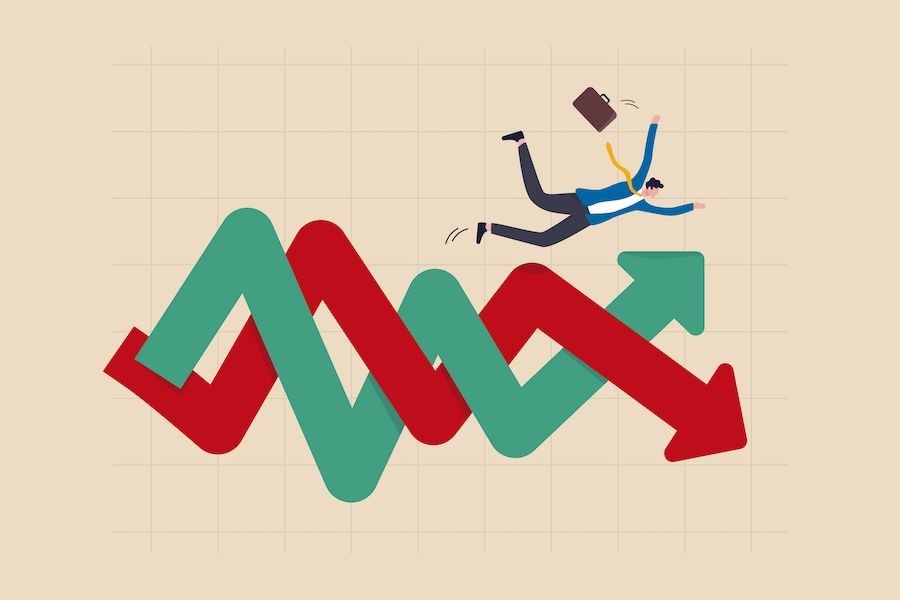New Zealand's economy is experiencing a notable period of growth, driven by various factors that are reshaping the landscape of business and sustainability. However, amidst this prosperity, there are underlying challenges that could hinder progress if not addressed. In this article, we delve into the reasons behind New Zealand's economic boom, examine potential pitfalls, and explore sustainable solutions to maintain growth.
Historical Evolution: The Path to Economic Prosperity
New Zealand's economic evolution is rooted in its agricultural heritage, with the dairy and meat industries traditionally serving as the backbone of the economy. Over the years, the country diversified its economic base, embracing sectors such as technology, tourism, and renewable energy. The government's proactive trade policies and commitment to innovation have propelled New Zealand into a position of global competitiveness.
Data-Driven Insights: What Fuels the Economic Boom?
A critical factor contributing to New Zealand's economic growth is its robust export sector. According to Stats NZ, the country's exports grew by 17% in the past year, driven primarily by dairy, meat, and wine exports. Additionally, the tech sector has seen rapid expansion, with digital exports increasing by 28% in 2023 alone.
Moreover, the Reserve Bank of New Zealand's low-interest-rate policies have facilitated business investments and consumer spending, further fueling economic activity. As a result, domestic consumption has surged, contributing significantly to GDP growth.
Case Study: Fonterra's Sustainable Growth
Problem: Fonterra, New Zealand's largest dairy cooperative, faced challenges due to fluctuating global dairy prices and increasing environmental concerns.
- The company struggled with maintaining profit margins while adhering to environmental regulations.
- Industry data indicated a potential 15% decline in profits due to these challenges.
Action: To address these issues, Fonterra implemented a comprehensive sustainability strategy.
- They invested in renewable energy sources and adopted precision agriculture techniques to optimize resource use.
- The cooperative also launched a consumer-facing campaign to promote the environmental benefits of their products.
Result:
- Profit margins improved by 10% within the first year.
- Environmental footprint reduced by 20%.
- Consumer perception significantly enhanced, leading to increased brand loyalty.
Takeaway: Fonterra's case demonstrates the potential for businesses to achieve sustainable growth by integrating environmental practices into their core operations. New Zealand companies can leverage similar strategies to enhance competitiveness and meet global sustainability standards.
Pros and Cons of New Zealand's Economic Growth
While the economic boom presents numerous opportunities, it also brings challenges that must be navigated carefully.
✅ Pros:
- Higher GDP Growth: New Zealand's GDP growth rate outpaces many developed nations, offering a robust economic environment.
- Increased Job Opportunities: The growth in sectors like technology and tourism has led to job creation and reduced unemployment rates.
- Global Competitiveness: New Zealand's focus on innovation and sustainable practices enhances its position in global markets.
❌ Cons:
- Housing Market Pressure: Rapid economic growth has inflated property prices, making housing less affordable for many Kiwis.
- Environmental Strain: Increased industrial activity can lead to environmental degradation if not managed sustainably.
- Economic Inequality: The benefits of growth may not be evenly distributed, leading to social disparities.
Contrasting Viewpoints: Growth vs. Sustainability
There is an ongoing debate about the balance between economic growth and environmental sustainability. Advocate perspectives argue that growth is essential for improving living standards and funding public services. However, critics caution that unchecked growth can lead to irreversible environmental damage and resource depletion.
Advocate View: Proponents of growth highlight New Zealand's ability to harness technological advancements and sustainable practices to drive economic expansion without compromising environmental integrity. According to a report by MBIE, adopting green technologies could lead to a 30% reduction in carbon emissions by 2030.
Critic View: Critics emphasize the need for stricter regulations and policies to ensure that economic activities do not harm the environment. They advocate for a shift towards a circular economy model, where resources are reused and recycled.
Middle Ground: A balanced approach involves integrating sustainable practices into economic planning. By investing in renewable energy and promoting eco-friendly industries, New Zealand can achieve both economic growth and environmental preservation.
Common Myths & Mistakes: Debunking Misconceptions
Several misconceptions surround New Zealand's economic boom. Let's address a few:
Myth: "Economic growth automatically leads to improved living standards."
Reality: While growth can enhance living conditions, it may also exacerbate inequalities if not managed inclusively (NZ Institute of Economic Research).
Myth: "Sustainability measures hinder economic progress."
Reality: Sustainable practices can drive innovation and market differentiation, leading to long-term economic benefits (Deloitte NZ Sustainability Report).
Future Trends & Predictions: Navigating Economic Challenges
The future of New Zealand's economy will be shaped by several key trends. By 2028, it is predicted that technological advancements will further transform industries, with automation and artificial intelligence playing a central role. This shift will require a focus on upskilling the workforce to meet new job demands.
Additionally, climate change will continue to impact economic planning. Businesses that proactively adopt sustainable practices will be better positioned to navigate regulatory changes and consumer preferences for eco-friendly products.
According to a report by Deloitte, integrating digital technologies and sustainability initiatives will be crucial for maintaining competitive advantage in the coming decade.
Conclusion: Final Takeaway & Call to Action
New Zealand's economic boom presents both opportunities and challenges. By embracing sustainable practices and leveraging technological advancements, businesses can drive growth while preserving the environment. As a sustainability consultant, it is crucial to guide organizations towards integrating sustainable strategies into their operations for long-term success.
What's your perspective on New Zealand's economic future? Share your insights below and join the conversation!
People Also Ask (FAQ)
- How does New Zealand's economic growth impact sustainability? Economic growth can drive sustainability by funding green initiatives, but it requires careful management to avoid environmental degradation.
- What are the biggest misconceptions about New Zealand's economy? A common myth is that economic growth always leads to better living standards, but this is not guaranteed without inclusive policies.
- What are the best strategies for sustainable economic growth in New Zealand? Experts recommend investing in renewable energy, promoting eco-friendly industries, and upskilling the workforce to meet future demands.
Related Search Queries
- New Zealand economic growth 2023
- Sustainable business practices in New Zealand
- New Zealand export statistics
- Impact of technology on New Zealand's economy
- Future of renewable energy in New Zealand
- Housing market trends in New Zealand
- Balancing growth and sustainability in New Zealand
- Environmental policies in New Zealand
- Challenges facing New Zealand's economy
- Economic predictions for New Zealand































